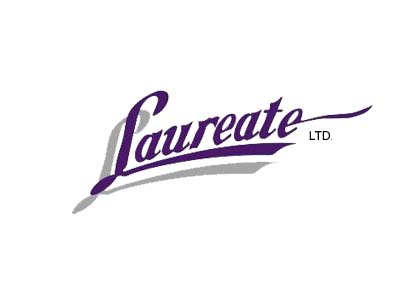If being a landlord was part of a Netflix series, understanding Denver's rental laws would be the plot twist no one saw coming.
Owning and managing a rental property might seem straightforward, but beneath the surface lies a labyrinth of laws, regulations, and best practices for staying compliant, protecting your investment, and keeping tenants satisfied.
Denver's unique rental landscape requires Colorado landlords to walk a fine line, balancing state and federal regulations while navigating evolving tenant rights.
Mastering key rental laws can enhance your property management strategy and avoid costly legal missteps.
Here's a breakdown of the crucial laws and regulations that every Denver landlord should know.
Colorado Landlord Tenant Laws
Colorado landlord-tenant laws are a framework for balancing landlords' and tenants' rights and responsibilities. These laws dictate everything from rent payment deadlines to property maintenance expectations.
Following these rules keeps you compliant with Colorado law and fosters positive relationships with tenants.
At the heart of these regulations is the Fair Housing Act, which aims to eliminate discrimination in housing. Federal laws prohibit decisions based on race, religion, gender, or disability, while state-level protections extend further to include sexual orientation and marital status.
Compliance isn't optional—it's essential.
Colorado Landlord Tenant Responsibilities
Under Colorado landlord-tenant laws, landlords have several responsibilities. One is to provide a rental unit that adheres to the warranty of habitability.
This responsibility means maintaining a safe and livable residential rental property with functioning plumbing, heating, and electrical systems.
On the tenant's side, they're responsible for timely rent payments, keeping the premises clean, and adhering to the lease terms.
This mutual understanding ensures smooth property management and mitigates disputes.
Essential Colorado Rental Laws
Denver's housing market operates under strict rental laws to maintain a fair and efficient system for all parties.
Colorado law requires landlords to sign written rental agreements for leases that last twelve months or more.
While this isn't mandated for shorter leases, detailed lease or rental agreements help clarify expectations and protect you and your tenants.
Security deposits must also follow specific protocols. Whether covering unpaid rent or damages beyond normal wear and tear, your actions must align with state and local regulations.
Navigating Landlord-Tenant Laws
Staying in compliance with rental laws entails properly documenting lease terms, such as monthly rent payments, late fees, and tenant responsibilities. Clear communication about each party's obligations ensures minimal disagreements.
Screening prospective tenants thoroughly and maintaining records of written rental agreements are key strategies to staying ahead.
Colorado Landlord Rights
Under Colorado landlord-tenant laws, landlords have several rights, including collecting rent on time, evicting tenants for valid reasons, and inspecting the rental premises.
However, these rights come with obligations. For instance, as local laws specify, you must provide proper notice before entering a tenant's unit.
Colorado landlords also have the right to evict tenants who violate the lease agreement or fail to pay rent. This process must be fair and compliant with Colorado laws.
The Role of Written Rental Agreements
A well-crafted lease agreement is your most powerful tool. Not only does it set clear expectations, but it also serves as a legal safeguard in case of disputes.
Written rental agreements should include the lease duration, rent pricing, late fees, and security deposit terms.
They are your first line of defense when tenant complaints arise.
Understanding Security Deposit Laws
Security deposits protect you from lease violations or property damage. However, mismanaging a tenant's security deposit can land you in legal trouble.
Colorado law requires landlords to return the deposit within 30 days, unless otherwise specified, and to provide an itemized list of deductions, if any.
Documenting the rental premises' condition before and after tenancy can avoid conflicts.
Managing Late Fees and Rent Payments
Late fees are an effective way to encourage timely rent payments, but they must be reasonable under Colorado law. Typically, late rent fees should be outlined clearly in the rental agreement.
This transparency ensures that tenants understand their obligations and reduces disputes.
Eviction Process Explained
Evicting tenants is often a last resort, but Colorado eviction laws offer a structured process. Whether the issue is unpaid rent or lease violations, the first step is to provide written notice.
Only after proper notice can you proceed with legal action.
Adhering to these rules protects you from legal repercussions while asserting your rights as a property owner.
Housing Discrimination in Rental Properties
Denver landlords must tread carefully to avoid allegations of housing discrimination. Federal and Colorado civil rights division guidelines explicitly prohibit unfair treatment based on protected classes.
Fair tenant screening practices and adherence to the Fair Housing Act are non-negotiables for landlords.
Lease Violations and Legal Remedies
Lease violations, such as unauthorized pets or failure to pay rent, are common challenges for landlords. Addressing these issues starts with clear lease terms communicated during move-in.
If a tenant violates the lease, you can enforce penalties, renegotiate terms, or evict under proper procedures.
Understanding Domestic Violence Tenant Protections
Colorado laws offer special considerations for tenants experiencing domestic violence. They may terminate their lease early without penalties, provided they follow specific legal steps.
Landlords play a role in supporting these tenants by ensuring the legal process is followed without added stress.
Rental Licenses and Local Laws
Denver requires landlords to obtain rental licenses for specific properties. This effort ensures compliance with housing standards and protects tenants’ safety.
Staying updated on local laws is vital, as regional requirements may differ from broader state regulations.
Raising Rent and Rental Prices
Raising rent is part of managing a profitable residential rental property. However, Colorado law requires landlords to provide sufficient notice before rent adjustments.
Communicating changes ensures tenants feel respected and comply with rental laws.
Pet Rent and Other Fees
Pet rent, deposits, and related fees must also adhere to regulations. Federal laws protect tenants with service animals, while Colorado landlords can set rules for pets through their lease agreements.
Balancing tenant satisfaction with protecting the rental premises is crucial.
Unlocking Success: Thrive as a Denver Landlord
Mastering the key rental laws every landlord should know in Denver isn’t just about avoiding legal trouble. It’s about elevating your property management game, ensuring tenant satisfaction, and maximizing your investment’s potential.
Staying compliant with Colorado landlord-tenant laws, creating solid lease agreements, and providing habitable rental housing set the foundation for success.
After all, the more you know, the better you’ll thrive in Denver’s competitive rental market.
Partner with Laureate LTD Denver's trusted property management services to streamline your rental operations and maximize your investment potential while adhering to Denver's rental laws.
Other Sources:
The New Role of Rental Property Inspections in Denver Rental Laws



